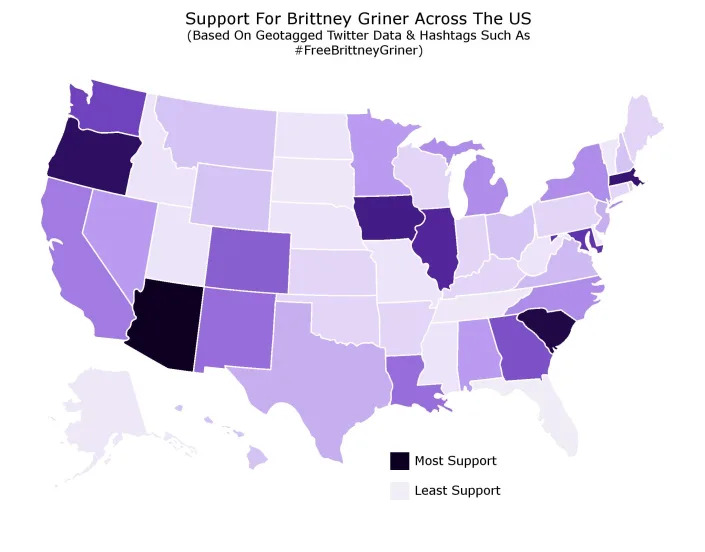Haven Orecchio-Egresitz,Kenneth Niemeyer
Fri, August 19, 2022

A New Hampshire church urged worshippers to wash their hands amid a Covid outbreak.
A New Hampshire libertarian group tweeted a list of churches, classifying them by how "woke" they are.
Being LGBTQ-friendly, COVID-cautious, or having a Ukraine flag displayed is considered "woke."
The list was posted amid a spike in far-right threats of violence.
The Free State Project — a New Hampshire-based
The list, which was published on a wiki called "LibertyWins.org," largely measures "wokeness" by whether the church is LGBTQ-friendly, has advocated for racial or social justice, or had implemented COVID precautions.
It was distributed by The Free State Twitter account, which has over 80,000 followers.
The list on "LibertyWins.org" titled "Christianity in New Hampshire," doesn't detail the intention of the list, but some critics on Twitter are calling the "wokeness" classification a "racist dog whistle" and worry that it will prompt attacks on the places of worship.
State Democratic Rep. Lucy Weber has previously protested against The Free State Project and described them as anti-LGBTQ. Weber told Insider that she didn't want to speculate about the group's motivations for compiling the list, but found it "distasteful."
"It's not an issue I have a lot to say on except that they've gotten the right to say it," Weber told Insider. "They're not government actors, so I find it distasteful, but I'm allowed to have my opinions too."
There are nearly 900 churches named, and they are identified by their location and denomination.

In a column called "wokeness" there are notes.
While displaying a Pride flag, or requiring masks was a sure-fire way to land churches on the list, there were other reasons cited for the classification.
An Episcopal church made its way on the woke list by donating to the NAACP. Another displayed a Ukraine flag on its website. A third included a blurb on its website about how they are located on "unceded native American land."
Eight Episcopal churches on the list were included for either supporting the LGBTQ. community on their websites or for generally being LGBTQ affirming churches. The Episcopal Church is generally more accepting of the LGBTQ community, according to the Human Rights Campaign. Rev. V. Gene Robinson, the former Episcopal Diocese of New Hampshire, was the first openly gay priest to become a bishop of a major Christian denomination.
A representative for the Episcopal Church of New Hampshire told Insider in a statement that the church was aware of the list.
"The Episcopal bishop of New Hampshire supports gay marriage, as do Episcopal bishops and churches across the nation, as does The Episcopal Church as a governing body," the statement read. "We are all seeking to be disciples of our savior Jesus Christ."
Founded by Jason Sorens, the Free State Project is a movement that since the early 2000s has encouraged the migration of "liberty activists" to New Hampshire, where they hope to live in a libertarian limited-government utopia.
The group's website explicitly says it is not tied to "any political party or organization," though many of its members who do run or serve in political office are registered as Republicans.
The Free State Project didn't return Insider's messages for comment.
At a recent protest against the movement, Weber told The Keene Sentinel that the group may preach freedom, but that liberty doesn't extend to people in the LGBTQ community. Members of the group, she said, have pushed to make it harder to register to vote and want to restrict abortions.
"They go, 'we're for liberty, we're for freedom.' Who isn't?" Weber told the Sentinel in July. "Their freedom is only for people who are just like them and they don't seem to have a concept of the public good."
Extremist threats of violence are at a high
The Free State Project says on its website — in bold — that "it does not welcome anyone who promotes violence, racial hatred, or bigotry" and in 2013 it kicked out infamous neo-Nazi Christopher Cantwell after he wrote about killing government agents and violently overthrowing the government.
And while the group says it doesn't welcome those who promote violence, the list, which singles out places of worship due to ideology, was shared on Twitter as threats of extremist far-right violence are at a high.
References to "civil war" doubled on online extremist platforms in the week following the FBI raided Mar-a-Lago, Insider previously reported.
Extremists have taken to both niche social media platforms and mainstream sites like TikTok, Twitter, and YouTube to preach pro-Trump violence.
Antisemitic threats against the Jewish Florida judge who signed the search warrant became so specific and credible that his temple canceled Shabbat services.
Judge Bruce Reinhart and Attorney General Merrick Garland have been subjected to "an enormous amount of threats and vitriol online," Alex Friedfeld, who monitors online extremism for the Anti Defamation League's Center On Extremism, told Insider.






















